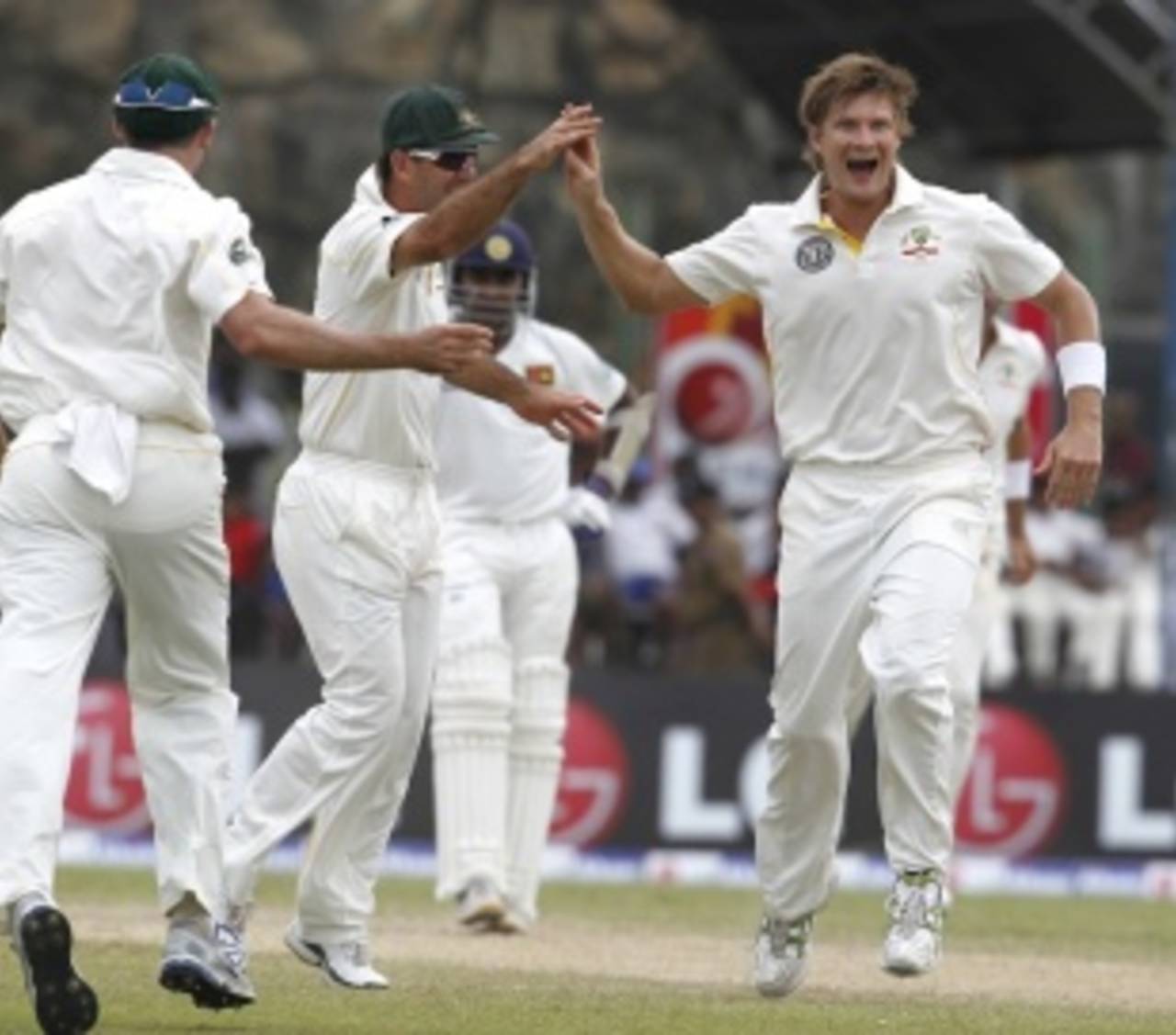Don Argus' review cut to the heart of Australian cricket. Two weeks later in Sri Lanka, its effect feels akin to that of a defibrillator: the heart is now beating more strongly than it has for quite some time.
On a strip of dirt that used to be a cricket pitch, Michael Clarke's Australia turned the weapon of the home side's conditions back on the opposition, reaching the cusp of a series lead with the most focused and professional team performance for quite some time. There has been no grumbling about subcontinent subterfuge, only a fierce and sustained push for the result.
In searching for a better Australian display, the mind is cast back to the fourth Ashes Test at Headingley in 2009, or to the series victory in South Africa that preceded it. Complete Australian Test victories against noteworthy opposition really have been that few and far between in recent years. To illustrate the point, it is shaping as Australia's first Test win in the subcontinent since a 2-0 series defeat of Bangladesh in 2006.
Any doubt about the direction of the match had been removed on the second evening by Clarke, who played an innings as resonant as any he has managed since the 151 on his Test debut in Bangalore seven years ago. Using the width of the crease against the spiteful turn, Clarke made the second highest score of the match, and in doing so contributed the sort of innings his predecessors would have looked on fondly.
A great captain's innings does not have to be a century, and Clarke's was redolent of the fighting 56 by Ian Chappell in Bob Massie's match at Lord's in 1972, or Allan Border's statement-of-intent 66 at Headingley in 1989. On each occasion the innings was as significant for its tone as its tally, helping a developing team grow surer after the captain's example. Border and Chappell had pace and seam to contend with, but Clarke made his name against spin and strongly enhanced it here.
Thus fortified, the Australian tail dragged the innings out on the third morning. Usman Khawaja has passed 20 in each of his four innings for Australia, and did so again in the company of Ryan Harris. His technique fully tested by the pitch and the bowling, Khawaja again showed plenty of determination, and evidence that he had taken lessons from his first innings trials. Harris, Trent Copeland and Nathan Lyon then drove the Sri Lankans to a state of some distraction, as 98 runs were added for the final four wickets. Much as a team's discipline, commitment and unity can be read from its displays in the field, so too can strong morale be interpreted from the tail's willingness to stick around. In Sri Lanka's first innings, the final seven wickets fell for 18 runs.
The home side's troubles are varied, stemming from convoluted board politics and a selection panel that seems at odds with the wishes of the team. Tillakaratne Dilshan's captaincy has left something to be desired from the moment he lost the toss, so handing the best of heavily slanted conditions to his opponents. The Australians were able to eke out more runs than the surface merited in each innings, helped in part by the fact that Dilshan is still developing his skills in manoeuvring the bowlers and the field. It is not always easy, and Dilshan is less of a natural than his counterpart. As a batsman, he was defeated by his own impetuosity in the first innings, then looked out of sorts and out of ideas in the second.
Kumar Sangakkara and Mahela Jayawardene, meanwhile, defended their wickets grimly in the second innings but seemed preoccupied by suspicion that Copeland was running on the pitch. Jayawardene in particular was animated in his complaints. The sight of the home side's most senior players squabbling with the umpires and the opposition over the protection of a surface that should have suited them illustrated the difference between Sri Lanka's approach and Australia's. The unsteady hosts have an almighty task ahead to avoid surrendering the No. 4 spot in the ICC rankings.
This Australian side is an enormous distance from being a great team, or even a very good one, but it has shown willingness to work hard and scrap heartily for success in drastically unfamiliar climes. Clarke's first victory as captain will be celebrated by the team but Argus and his review panel will have equal reason to rejoice. A system they found moribund has received its long overdue shake, and now the way ahead is clear.
Daniel Brettig is an assistant editor at ESPNcricinfo
